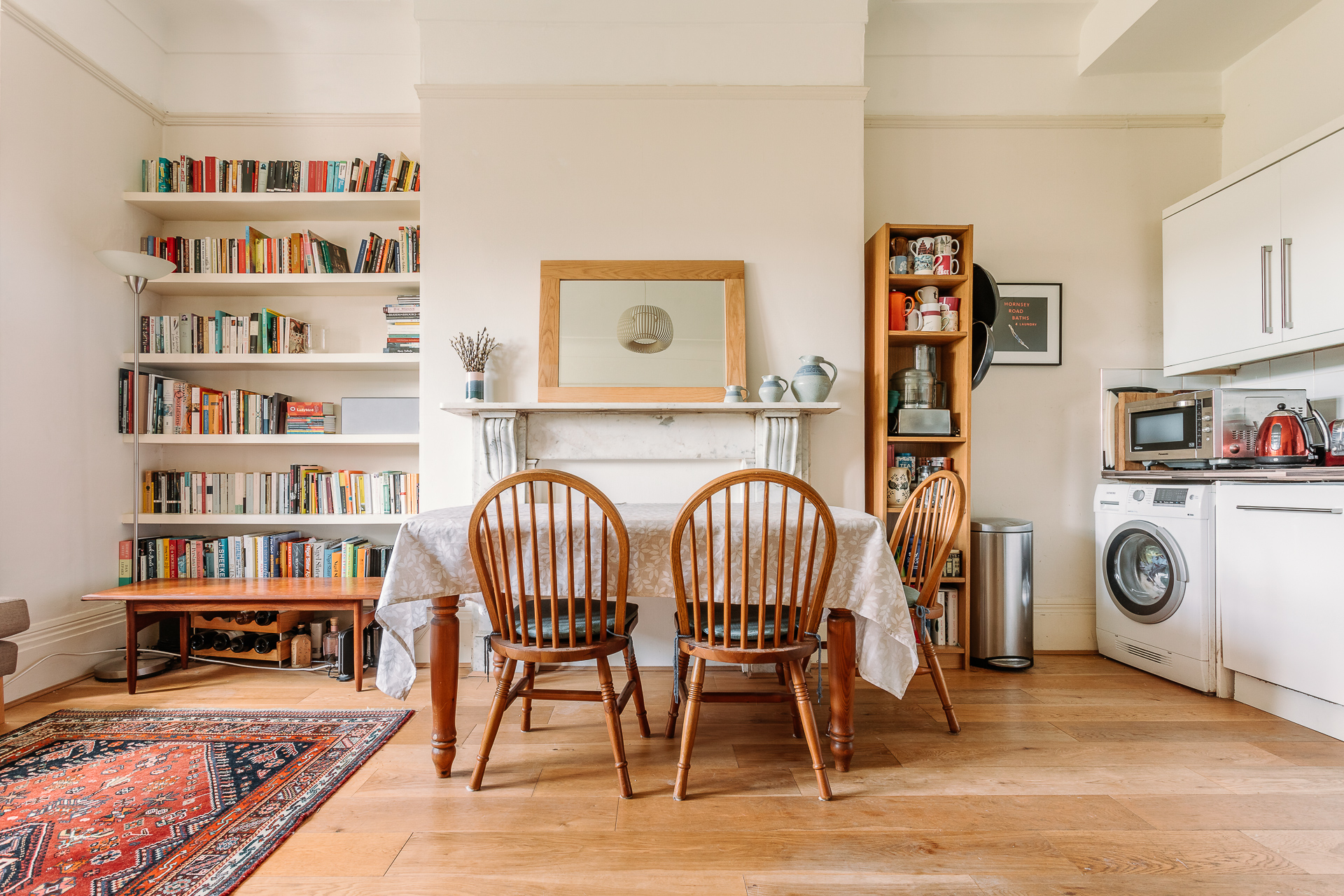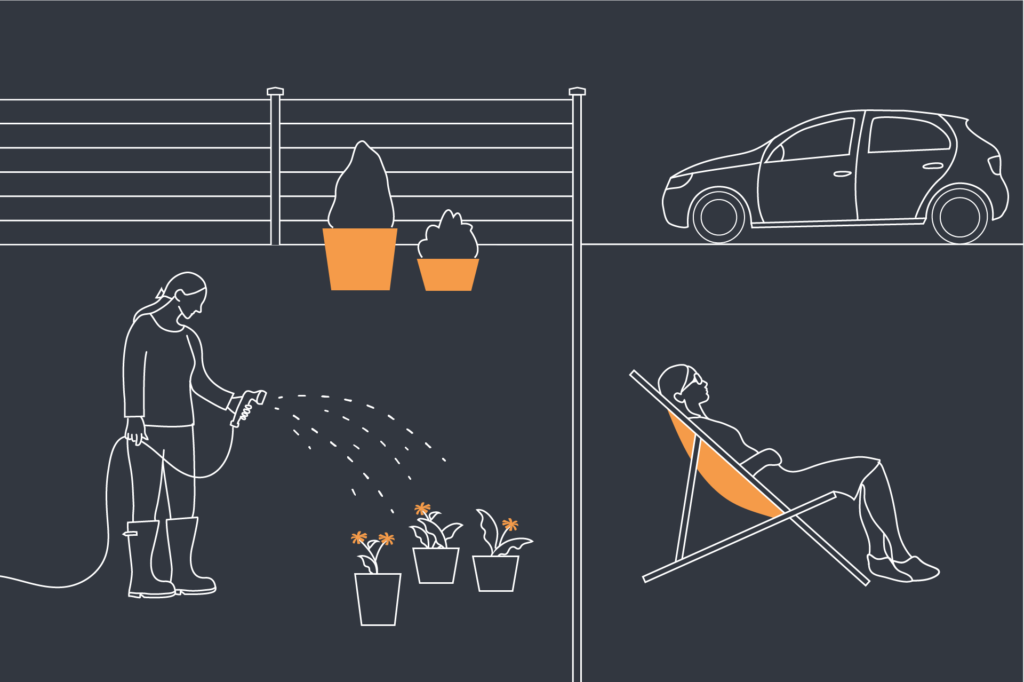There’s a lot more to letting out a property than just handing over the keys. As your local property nerds, we’ve compiled a list of everything you need to know to make the process of renting out your property as easy and stress-free as possible. Whether you’re new to the game or would just like a refresher on the latest legislation, here’s the low-down on how to live your best life as a (law abiding) landlord. Alternatively, you could just leave the hard work to us, a letting and management agency who knows your job inside out – leaving you able to concentrate on the things in life that matter the most (family, friends and eating).

Life’s a Gas, Get Yours Checked
When it comes to renting out a property, the old saying rings true: safety first. To ensure all gas appliances, flues, meters and associated pipework are up to scratch, you’ll need to call in a Gas Safe registered engineer. If all is well, you’ll be issued a Gas Safety Certificate which you must give to your tenant before they move in and get renewed every 12 months. If you’d rather be organising yearly holidays than yearly gas checks, you can hand the responsibility of managing your property over to Davies & Davies, who can arrange the Gas Safety inspections for you. Who said all this landlord malarkey was hard?
“To ensure all gas appliances, flues, meters and associated pipework are up to scratch, you’ll need to call in a Gas Safe registered engineer.”

Rock Down to Electric Avenue (and Get Your Electrical Appliances Checked)
This next one shouldn’t be a shocker. All electrical appliances come with their own set of safety regulations. The big one you need to know about (and comply with) is the Electrical Safety Standards in the Private Rented Sector (England) Regulations 2020. Take note. It’s now a legal requirement that all electrical wiring circuits and components are checked by a qualified electrician prior to any new letting of the property. Where there is no new letting then it’s compulsory for electrical checks to be carried out every five years on all privately rented properties. A copy of the test report must be given to the tenant within 28 days of the inspection test or to a new tenant before they occupy the property, without exception.
If we manage your property, we’ll make sure to remind you when it’s time to do a check. It’s also important that anyone carrying out electrical checks including PATs (portable appliance tests) and EICRs (electrical installation condition reports) must be qualified to do so. Davies & Davies only work with engineers who meet the government’s requirements, so if you aren’t familiar with the hard wiring behind these acts, we can help you employ someone who is and at a competitive price.
It’s also important to be aware of the Plugs & Sockets Safety Regulations 1994 and The General Product Safety Regulations 2005 are also in force and must be adhered to. Again, we can help with that.
“It is now compulsory for electrical checks to be carried out every five years on all privately rented properties.”

Don’t Break the Code of Energy
Almost all rental (and sales) properties must have an Energy Performance Certificate (EPC) attached to them. These certificates show how energy efficient the property is and are compiled by a qualified and accredited Domestic Energy Assessor, who will visit your property to complete an EPC survey. The EPC must be commissioned before the property is put on the market and it must be available to be shown to prospective buyers or tenants if requested. The lowest legally required rating is an ‘E’ but you should aim for an ‘A’, as prospective tenants will be able to see this certificate and judge your property accordingly. For all of you over achievers out there, we’re afraid there’s no A* rating. As EPCs only last for 10 years and became compulsory in 2008, it is important to check that your EPC is still valid and the rating is E or higher. Failure to have a valid EPC certificate, or renting a property which has a rating lower than an ‘E’, can result in significant fines placed on the landlord.
If you’ve got a ‘F’ or ‘G’ rating, or perhaps you’ve got an ‘E’ upwards but would still like to improve your rating to be more appealing to tenants and be greener at the same time, please have a read of our article about how to improve your rating by clicking here.
“the lowest legally required rating is ‘E’ but you should aim for an ‘A'”

Paperwork Makes the Dream Work
It’s important to provide your tenants with certain documents and compliance paperwork within their relevant time frames. For example, before your shiny new tenants move in, they’ll need to be given the following: a valid Gas certificate, EPC, the Government’s How to Rent Guide and the prescribed pages relating to the tenant’s deposit, a valid fixed wiring installation certificate and a copy of their deposit terms and conditions. Failure to do so can cause you heaps of issues, fines and, if worst comes to worst, could mean you would lose the ability to seek possession using Section 21 (if it ever came to that). These requirements aren’t the easiest to keep up with and are constantly changing – the very latest update being as recent as May of this year (the Government’s brand new How to Rent Guide). But not to worry, before you start setting those Google alerts, we at Davies & Davies eat legislative changes for breakfast and are on top of all of the current rules and regulations so you don’t have to be.
“before your shiny new tenants move in, they’ll need to be given certain documents and compliance paperwork…”

Count It Up
In the words of American rapper J.Cole, count it up, count it up, count it up, count it: the number of people living in your property that is. Large tenancies might need to be registered as a HMO (house of multiple occupation). Some areas have special licensing requirements so it’s worth seeking help from a letting agency, like ours, who can advise as to whether your property requires a HMO and can even manage the application process for you. You’ll also need to pay income tax on any profits raised from your rental income (and declare these profits on your tax return). Don’t live in the UK? Some agents charge non-resident landlords extra but Davies & Davies is happy to help you fill out the correct tax forms without any surprise costs, ‘cause we’re nice like that.
“large tenancies might need to be registered as a HMO (house of multiple occupation).”

Don’t Be a Twisted Firestarter
When furnishing a property, it’s important to consider the practicalities: does this sofa comply with fire safety regulations? Does it block the exits? It’s actually an offence to let a property that doesn’t meet the requirements set out in the Furniture and Furnishings Fire Safety Regulations Act 1988. So make sure you check for the fire safety label (which will feature the word ‘RESISTANT’ in caps underneath a drawing of a lit match) when sourcing upholstered furniture. To stay on the right side of the law, you’ll also need to install a smoke detector (at least one for every floor of your property) and a carbon monoxide detector. Once your tenants have moved in, it’s their responsibility to check the detectors are working and replace the batteries if necessary. Do all this and your chances of becoming a twisted firestarter are very low, which is bad for your street cred, but great for your tenants.
“you’ll also need to install a smoke detector (at least one for every floor of your property) and a carbon monoxide detector.”

If you want to know more about your options, have questions about any of the new laws and regulations, or just want to know more about the ins and outs of becoming a landlord – we’re here to help!
alex@daviesdavies.co.uk – Lettings Manager (contact for lettings and property management)
mark@daviesdavies.co.uk – Sales Manager (contact for sales, new homes and chartered surveying)
020 7272 0986
Davies & Davies Estate Agents, 85 Stroud Green Road, London, N4 3EG
Article by Kyra Hanson at Barefaced Studios
Photography by Odera Okoye at Barefaced Studios

Well, well, well, 2023 was quite the rollercoaster for our dear housing market wasn’t it? Prices dropped for the first time in over a decade, leaving homeowners in a bit of a tizzy. But fear not, sellers – it’s not all doom and gloom for 2024. Research has shown that despite the fall in prices, 93% of sellers still made a profit. Who says those pesky avocado-smeared millennials can’t be homeowners, eh? Now let’s get to the juicy part: how much moolah did these lucky sellers make? Well, the average gross gain was a whopping £74,000. That’s enough to pay off your student loans and still have some left over to feed your secret chipotle habit.
Read More...Get in Touch
Opening Times
Mon – Thurs: 0900 – 1815
Fri: 0900 – 1800
Sat: 1000 – 1600
Sun: Appointments by request

